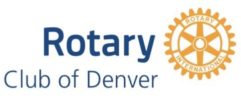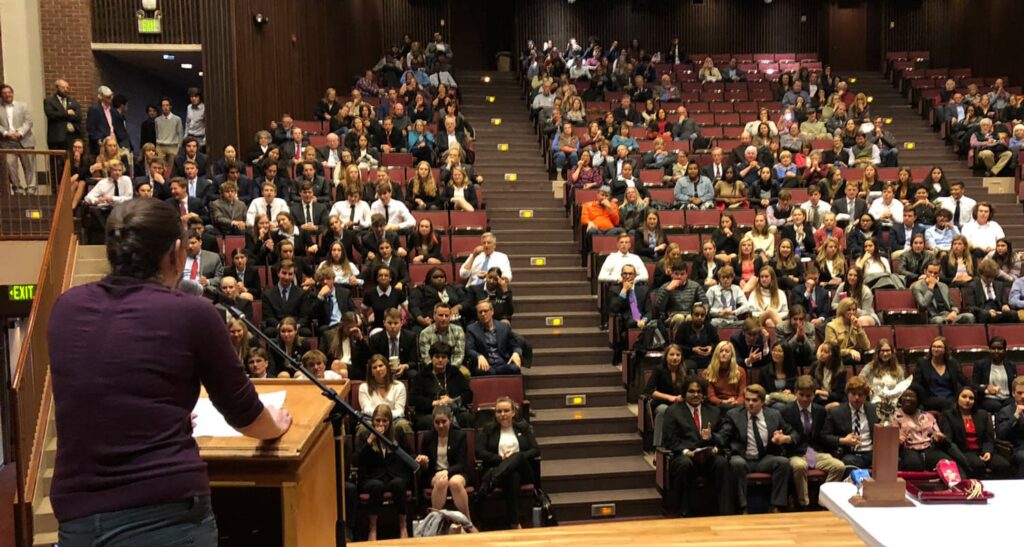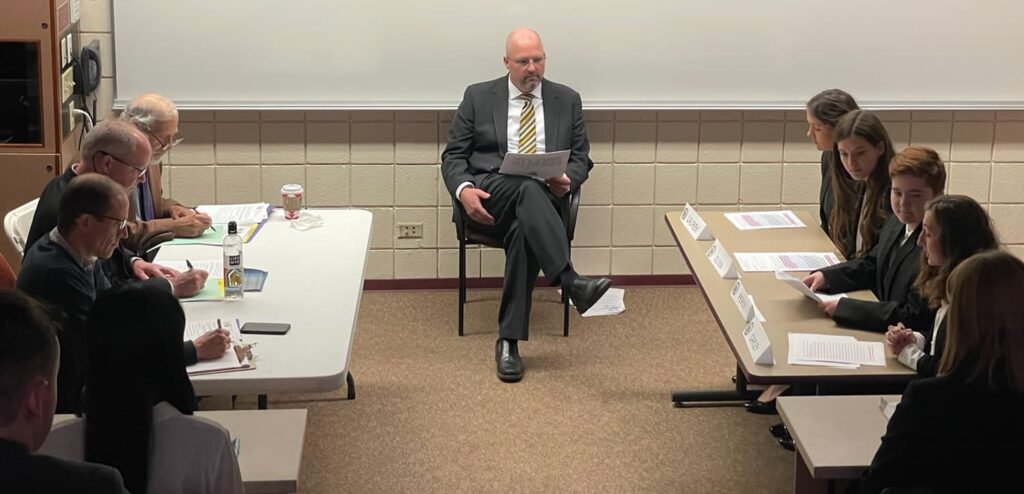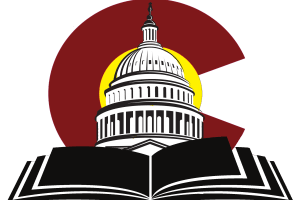
The Colorado State Competition and Showcase took place on December 8, 2023, at Denver University, sponsored by the Rotary Club of Denver. East High School won the state competition and will be going to Nationals, along with Overland High School which the Center for Civic Education selected as the 2023-24 John Lewis School . To qualify for consideration schools must have participated in the state finals and met two of these criteria, with OHS meeting all three.
- At least 30% of students are from families whose incomes are below the poverty line.
- At least 50% of the total school population are eligible for free or reduced-price meals.
- At least 50% of the total school student population is Black, Indigenous, or People of Color.
Typically held in December of each year. Colorado offers schools two ways to participate at the state event. Division I schools abide by the standard rules for the We The People state competition, preparing for all three potential questions in each unit. The winner of Division I advances to represent Colorado at the national competition in Washington DC. The potential for a second team to represent CO as a wild card may be offered by the Center. See past questions here. Schools participating in Division II will prepare for one question for each panel. Division II schools experience a more relaxed environment, where judges will be allotted more time for constructive feedback. All schools are recognized for the learning they demonstrated during the closing ceremony. Division II schools are not eligible for the national competition in DC.

The national program is managed by the Center for Civic Education based in Calabasas, California, but acts primarily through state coordinating organizations such as C3LE. Students who participate in the Colorado High School WTP Competition and Showcase are enrolled in a government class at their high school & prepare for a simulated congressional hearing, in which small groups of students testify before a panel of judges, acting as members of Congress. Students demonstrate their knowledge and understanding of constitutional principles and have opportunities to evaluate, take, and defend positions on relevant historical and contemporary issues. Each participating class is divided into six different units of focus. Beyond the classroom instruction, teams spend evening and weekends in coaching sessions, provided by community volunteers. These constitutional and law mentors assist student groups in studying and preparing responses to a unique annual slate of complex Constitutional questions. These coaches include Colorado Supreme Court judges, Colorado Court of Appeals judges, Denver District Court judges, government representatives, legal professors, practicing attorneys, historians, and educational leaders. During the hearings, volunteer competition judges, of similar status and expertise of the coaches mentioned above, evaluate and engage in follow up dialog with the students. From this exchange, the judges determine the depth of understanding of each student team & finalize their rankings. When recruiting coaches and judges, C3LE utilizes a balanced approach and strives to have a diverse body of political outlooks and scholarship. When in Washington, the CO state champion meets with at least one Supreme Court Justice and at least one Colorado Senator.
Additionally, we offer a hybrid option. This allow schools to connect remotely to the site of the state competition and be judged in real time.
Schools will be allowed to self-select into either Division I or Division II. Schools can only enter one team for Division I. Schools wishing to enter more than one team, can place additional team(s) in Division II. In these cases, schools may use in-school competitions, or some other means, to determine which teams will represent the school in each Division.
Registration fees support the renting facilities, incidental expenses for judges, and program administration. As always, we are prepared to help schools who lack the resources to seek support from local and state community foundations and are open to reductions in registration costs for those schools that would otherwise be unable to compete.

